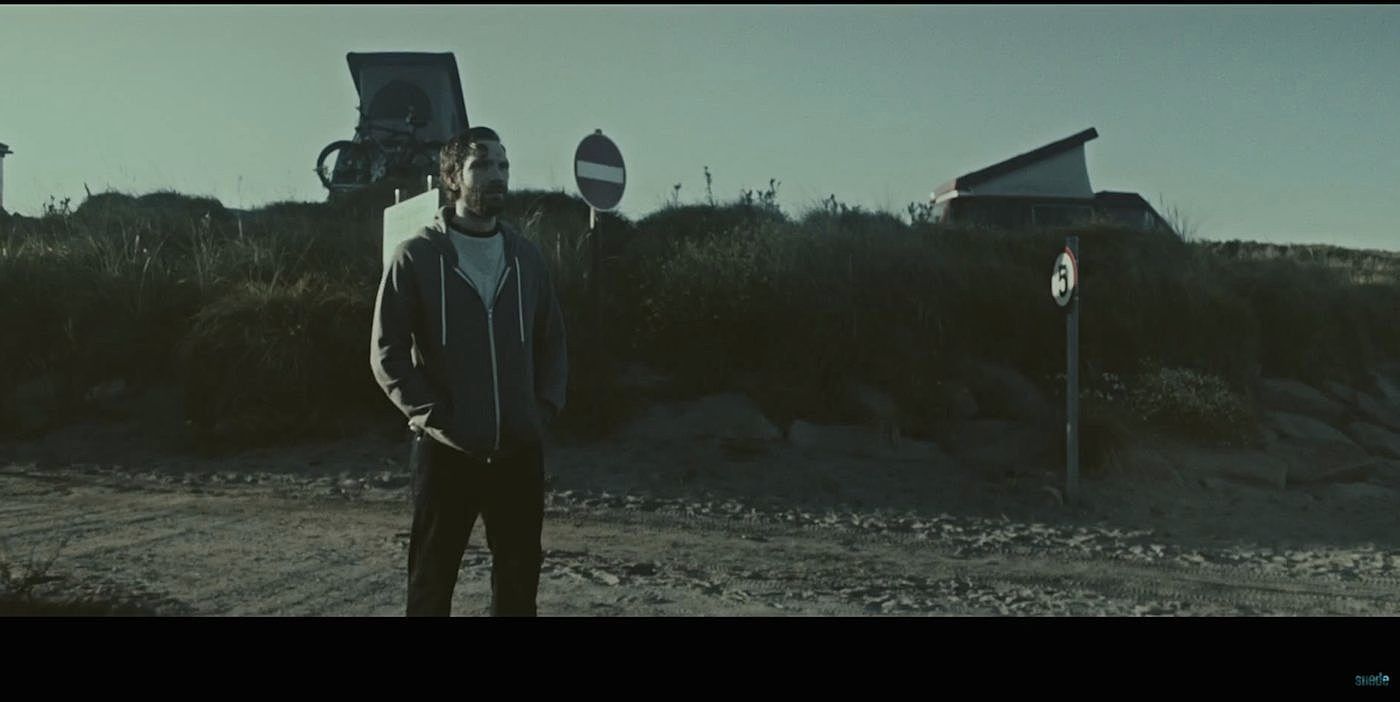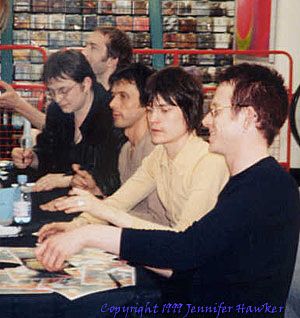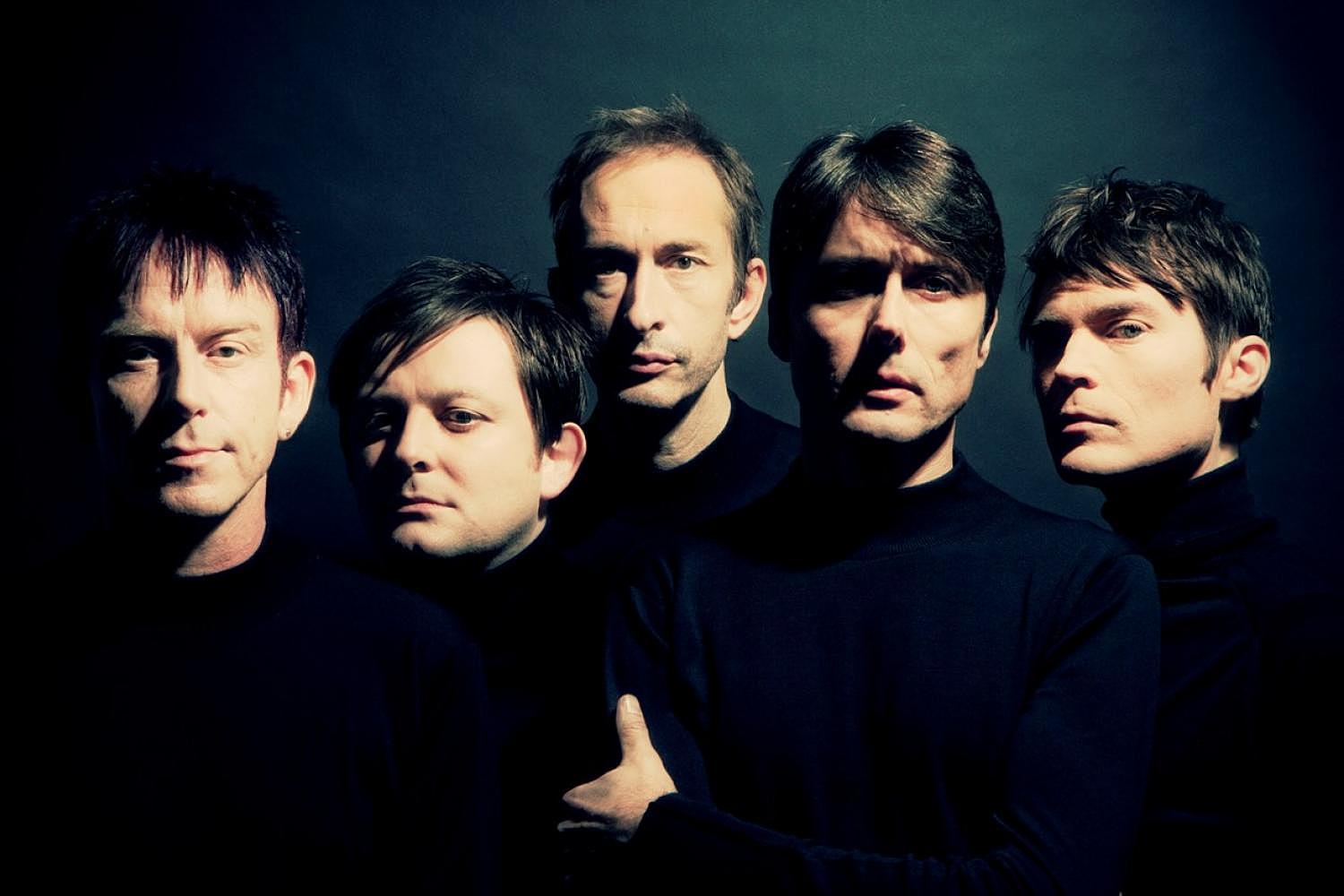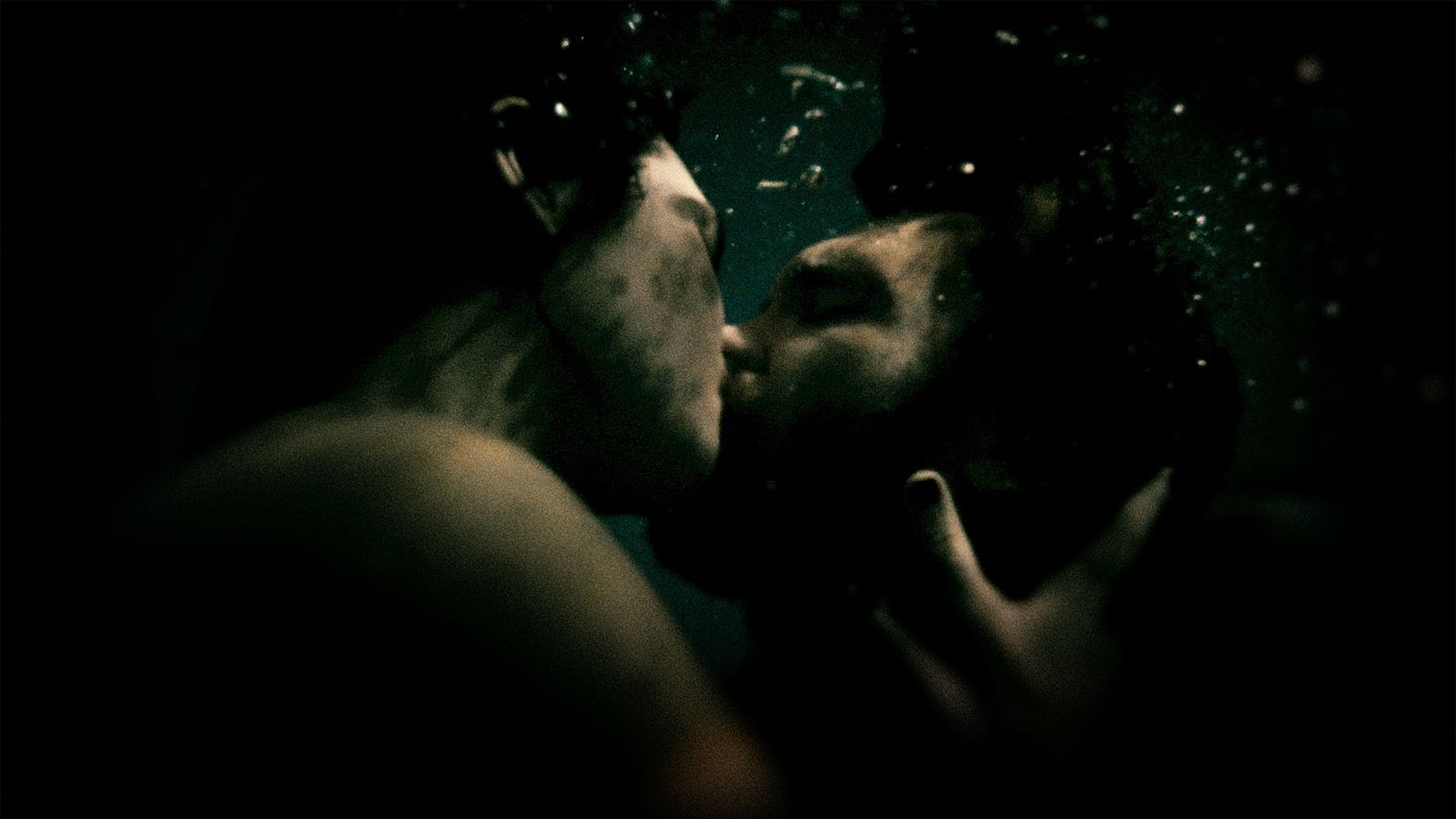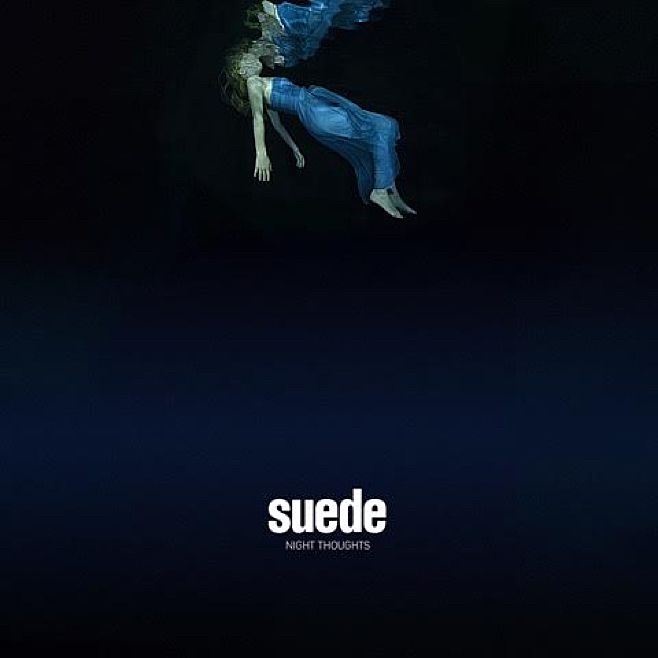Life, Death and 32kbps Streams : How Suede Came Back, How I Came Back To Suede
Joe Nunweek talks to Suede's Mat Osman
You had to be there, and I was, sort of. In 1999, a point that may as well have been pre-Internet for the few footprints it left, Suede were everywhere. In the run up to their fourth record, Head Music, UK music magazines like Uncut expended the dozens of pages on the band that they usually allocated to geriatrics like Jagger or Waters; on the week of physical release, every Virgin Megastore in the United Kingdom was rebranded “Head Music” and played Suede round-the-clock inside. The company’s then-commercial director, Steve Kincaid proclaimed to the NME: “It’s not just a PR stunt. It also demonstrates our belief in the strength of Suede’s new album.”
It was a belief bassist Mat Osman was struggling to share. “That whole time was a whirlwind and really not the kind of media junket that plays out anymore. No dozen-page features, no store rebrandings, no more signing CDs with queues of hundreds of people at 2 in the morning,” he tells me on the phone 17 years later.
The recording of Head Music had been infamously fraught. Recording dragged out over six months, from studio-to-studio. Most of the band weren’t talking. Arch, razor-cheekboned frontman Brett Anderson was so far gone on crack he couldn’t even craft his addiction into any kind of seedy glamour. Nightmare couplets like “she live in a house/she stupid as a mouse” abounded. Different members attended different recording sessions – a trip-hop gambit there, watery singer-songwriter Big Stuff polemic there. “There’s a great big crack/in the Union Jack”, Anderson wailed.
Compare and contrast to when Osman and Anderson and band premiered their new album, Night Thoughts, last November. The promotional arms that used to prop them up are gone or dying. They’re a reunion act, the kind of vehicle that should obediently shepherd their way ATP-style through 20-year-old records. Instead, attendees were forced to grapple with Night Thoughts front-to-back. 12 brand-new songs with a harrowing and relatively unshowy feature film to accompany them behind it. They adored it.
“It’s the thing new bands are allowed to get away with more,” Osman muses, “and there’s the expectation that on reuniting, your job is to shut up and play the hits. We didn’t have any way of knowing how it would play out, but the reaction from the crowd was extraordinary, even to the dense or slower stuff where we knew there was a risk we could lose them. It was a massive vote of confidence.”
And make no mistake: from my limited perspective, Night Thoughts is a solid, confident volley, particularly when you weigh it against the last unfocused and tentative years of their original run. Here’s where I come in: Head Music was one of the first CDs I ever brought, and one of the first I parted with. I think that it came after Radiohead’s OK Computer, The Offspring’s Americana and The Smiths’ Singles for me. Faced with the princely sum of $34.95 a disc, I’d already figured out how to use Imagine Radio, a service I could swear I’d eaten up my parents dial-up with for five years but that Wikipedia reveals existed for less than a year.
Think of it as a paleo-Pandora. I ticked Radiohead, Offspring, and The Smiths as music I wanted to hear lots of, and hear lots of music similar to. It would then randomly generate a playlist for you. And so I got introduced to most of Suede’s first two albums (particularly the histrionic, well-crafted self-titled) in the form of hissy 32kbps streams, nestled in between Pennywise and New Order. I was into them enough to read hugely inaccurate Geocities fan sites and to go looking up what amyl nitrate did (that was an eye-opener). Looking back, they must have sounded like Anthony Newley fronting a Siltbreeze band on RealPlayer 2. But it added to the grubby mystique, a bunch of androgynous adults talking about cool and tragic lives somewhere exciting and far away.
Dropping real chore money on Head Music in 1999, then, cued much soul-searching. Kincaid, wherever he is today, was wrong. The production felt deafening and deadening, the album nearly an hour long, the tone of the whole thing lazy, hokey, plastic, boring (the missing link between Britpop and bad NME 2000s garage rock, if you needed to hear it, is in here). Miraculously, it found its way back to its jewel case, eventually traded in for a fraction of its retail price.
Listening to Head Music now is worthwhile and interesting in the way that any bad album by a talented artist is worthwhile and interesting – it becomes more documentary than it does music appreciation, the pathos lying in the attempt and not the success. You hear a bunch of thirty-somethings struggling with big drug tabs, with the burden of expectation and fear of irrelevance, the nails on chalkboard of people encountering the limits of what they’re good at.
But after one more desultory effort, the band was finished. I confirm with Osman the infamous account of the break-up in 2003 – in the green room, about to have to humor Graham Norton on live TV before playing songs they were tired of. “We were about to go on, and that’s where Brett turns to me and we decided – let’s not do this anymore.”
Describing my fierce if brief internet romance with Suede is meaningful insofar as Suede have ended up being a band who have generated a lot of fierce internet romances. The 90s have been smoothed over to Blur vs Oasis plus Pulp as the undercard, and popular consciousness has forgotten how big and ubiquitous Suede were. But an international cult following, Osman says, “helped remind us what we were good at.
“I think it was genuinely good for our creative radar, and important in terms of the reunion, to see kids from all over the world who are picking up on these albums years after the fact, who have listened and absorbed something you did in an afternoon in 1992. And they can express what they love about that music and why very well. You have to remember that there was a period there where we were convinced we’d absolutely vanished into obscurity. The band was sort of discussed like a footnote in 90s trivia, and it’s only in the last few years we’ve really been able to see that we’re more than that, especially to a new audience. People telling you, years after the fact, that your music changed their life – there’s nothing like that.
“We’re never going to give people exactly what they expect – I mean, hopefully what we've done with Night Thoughts shows that – but it’s different to how uncertain we felt last time, having to wonder about what would make the next record a hit.”
It’s absolutely a Suede album in terms of the fundamentals. Having gone out in a downtempo smear last time, this incarnation of Suede is absolutely going for it the way they did in their original phase. Lead single “Outsiders” may be about as lean and propulsive as the band gets, but it also dares to fall or stand on Anderson’s operatic belting of the chorus. But the record also comes in and goes out on huge, juddering Scott Walker-style strings and possesses moments where they go full-bore soundtrack – as on ‘Pale Snow’, where the wheels leave the tarmac, and the ambience and dust left behind does heavy lifting that just singing “I’m alienated” couldn’t.
When he does open his mouth, the minutiae Anderson used to wallow in – rough sex in bedsit homes, co-dependent affairs above or below your station, drugs-drugs-drugs for pleasure or numbness, are regarded from a fearful distance. These are songs about family men toeing a Jekyll and Hide line and waking up at 4am in a cold sweat, acutely aware that the difference between destroying all they have and preserving it is a trick of circumstance and not self-control.
If none of this is a reinvention exactly, it shows an awareness of where their listeners can be pushed next, a move beyond the comfort zone now that their transgressive moments of yesteryear are 90s Indie Megahits.
Though the band are averring it from calling it a concept album, the songs and the accompanying film are conceptually tight. Directed by Roger Sargent, the feature doesn’t fall into the glamour trap you’d associate with a NME photographer previously acclaimed for tailing the Libertines. Opening on a man’s suicide by drowning, it jumps backwards and sideways in time. It’s largely suburban and greyed-out. The most intimate moments include a protagonist’s drunken, euphoric walk home, a woman trying to film her fish tank on one of those grunty early-2000s digital cameras and accidentally recovering footage of better times. By celebrating and documenting people who are avowedly not stars, it manages to get closer to the band’s original essence than a 3-minute music video could.
As Osman points out, “these are places where we came from. We weren’t born-and-raised London art school kids, we weren’t cool. We were from the suburbs, from shitty new towns, and that’s who we wrote for.”
Osman himself, childhood friends with Anderson and a member of Suede from the start, is a versatile bassist who’s largely gone underrated. Like contemporaries Andy Rourke and Alex James, he’s the unfussy melodic undertow behind songs that front-foot their other production tricks (see ‘Moving’ and ‘The Wild Ones’ and you’ll gradually notice he’s doing quite a bit). I wonder if the band’s various phases of string and synth, and considerably less ‘rock’, ever had him offside.
“Not at all. The important thing about how we operate – I think people assume that because Brett is the frontman and he’s got such a strong presence, the band was about one or two people calling the shots. But we’re a democracy and we understand that not playing isn’t the same as not participating in decision-making, and a lot of the music I’m proudest of isn’t necessarily the music where you’ll hear my presence very much. Which is not to say we don’t argue about things at length. We’ve often disagreed with Ed (Buller, producer of Suede’s first three albums and their post-reunion ones) – he makes us come back again and again, we have to chip away at certain things until they’re right - but that push and pull is essential.”
When they reunited for a cancer charity show in 2010, the band demurred from saying whether they’d ever make another album. Asked about their future after their first reunion album, 2013’s Bloodsports, Osman was adamant. He would be proud to call it the last Suede record. It seems like a meticulous rebirth for a band I left in the lo-fi stream 15 years ago, to come back and find them energetic and demanding and genuinely worthwhile. When I ask Osman what all the coyness is about, he gently rebuffs me.
“I don’t think it’s coyness at all. There’s been no grand plan beyond a sense that things didn’t end the way we want to. Rewriting that history, whether it was a really good final run of shows – or one last album, or two albums, or more – that’s been great, but genuinely unexpected. We see ourselves as an active working band in the here and now, and we’re certainly not taking it for granted.”
Night Thoughtsis out now on Warner Music NZ now on CD, vinyl and DVD.
